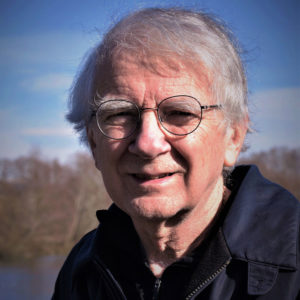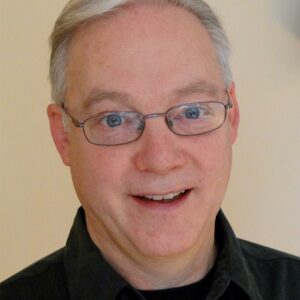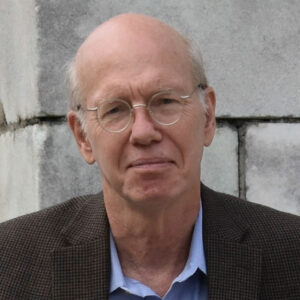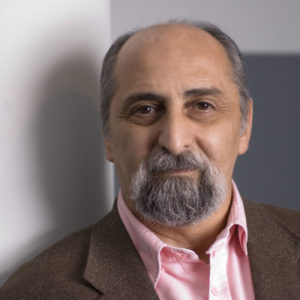Celestial Voices
Richard E Brown composer
Denice Rippentrop composer
John Partridge composer
Christopher J. Hoh composer
William Copper composer
Ferdinando DeSena composer
Ethereal, uplifting, and deeply impactful throughout. The works on CELESTIAL VOICES check these boxes and more. Featuring sacred choral works from several contemporary composers, this offering from Navona Records is a musical exploration into the divine that’s ready to be experienced in both stereo and Dolby Atmos immersive audio formats.
Modern harmonies and rhythmic freedom, new settings of famous hymns, fragments of plainchant that highlight contemporary topics, and more are expressed with clarity and spirit by The Kühn Choir of Prague in this release, who are joined by supportive instrumentalists at various points in the program.
Listen
Stream/Buy
Choose your platform

Experience in Immersive Audio
This album is available in spatial audio on compatible devices.
Stream now on Apple Music, Tidal, and Amazon Music.
Track Listing & Credits
| # | Title | Composer | Performer | |
|---|---|---|---|---|
| 01 | Kyrie Eleison | Richard E Brown | The Kühn Choir of Prague | Lenka Navrátilová, choirmaster | 4:54 |
| 02 | Nunc Dimittis | Richard E Brown | The Kühn Choir of Prague | Lenka Navrátilová, choirmaster | 4:46 |
| 03 | Yahweh! | Denice Rippentrop | The Kühn Choir of Prague | Lenka Navrátilová, choirmaster; UNI Quartet | Andrea Burianová, Jan Petřík, Mikoláš Čech, Karel Urban; Ondřej Štajnochr, double bass; Kristýna Fílová, solo soprano | 5:50 |
| 04 | Dies Irae for the Children of Ukraine | John Partridge | The Kühn Choir of Prague | Lenka Navrátilová, choirmaster | 2:22 |
| 05 | Three Latin Prayers: I. Angele Dei | Christopher J. Hoh | The Kühn Choir of Prague | Lenka Navrátilová, choirmaster | 2:59 |
| 06 | Three Latin Prayers: II. Agimus Tibi Gratias | Christopher J. Hoh | The Kühn Choir of Prague | Lenka Navrátilová, choirmaster | 3:29 |
| 07 | Three Latin Prayers: III. Dona Nobis Pacem | Christopher J. Hoh | The Kühn Choir of Prague | Lenka Navrátilová, choirmaster | 2:17 |
| 08 | Ave Regina Caelorum | William Copper | The Kühn Choir of Prague | Lenka Navrátilová, choirmaster | 4:29 |
| 09 | Stabat Mater | William Copper | The Kühn Choir of Prague | Lenka Navrátilová, choirmaster; Marcel Javorček, piano | 8:06 |
| 10 | Hark What Means Those Holy Voices | John Partridge | The Kühn Choir of Prague | Lenka Navrátilová, choirmaster | 3:32 |
| 11 | Three Psalms | Ferdinando DeSena | The Kühn Choir of Prague | Lenka Navrátilová, choirmaster; Marcel Javorček, piano; UNI Quartet | Anna Burianová, Jan Petřík, Mikoláš Čech, Karel Urban | 13:33 |
Recorded September 16, 2019, June 5, July 26-27, August 29-30 & September 7, 25-26, 2023 at The Chapel at Korunni in Prague, Czech Republic
Recording Session Producer Jan Košulič
Recording Session Engineer Aleš Dvořák
Recording Session Assistant Engineers Jana Jelínková (Track 8), Adam Janků (Track 11)
Recording Sessions Director Levi Brown (Track 8)
Editing Jan Košulič (Tracks 1, 3-11)
Additional Editing & Mixing Melanie Montgomery (Tracks 1, 3-11)
Editing & Mixing Melanie Montgomery (Track 2)
Editing & Mixing Jan Košulič (Track 8)
Stereo Mastering, Atmos Mixing & Mastering Brad Michel
Executive Producer Bob Lord
VP of A&R Brandon MacNeil
A&R Danielle Sullivan, Chris Robinson
VP of Production Jan Košulič
Audio Director Lucas Paquette
Production Manager Martina Watzková
Production Assistant Adam Lysák
VP, Design & Marketing Brett Picknell
Art Director Ryan Harrison
Design Edward A. Fleming
Publicity Kacie Brown
Digital Marketing Manager Brett Iannucci
Artist Information

Richard E Brown
Richard E. Brown, a native of New York State and has been active as a composer-arranger and music educator for many years. His training includes M.M. and D.M. degrees in composition from Florida State University, as well as a B.A. in music education from Central College, which named him a Distinguished Alumnus in 1983. His principal composition studies were with Carlisle Floyd, John Boda, and Charles Carter.

Denice Rippentrop
Denice Rippentrop believes that composing is a craft that is as much about the creative journey as the final composition itself. Rippentrop is the creator of numerous choral works, each of which she finds challenging in process, but fulfilling in the end. Composing gives her energy and purpose as she continually challenges herself to write with integrity and compassion. Rippentrop writes with a style and flair that reflects her understanding of the voice and ensemble balance.

John Partridge
John Partridge has been performing in the San Francisco Bay Area since the 1970's. As a concert pianist and organist, he specializes in music by American composers. As a composer, he has written everything from film scores to church cantatas. After graduating from Berkeley High School, John attended UC Santa Cruz where majored in composition and conducting. Returning to the Bay Area in 1976, Partridge served as music director of the Bay Psalmers (a chorus composed of businesspeople in downtown San Francisco), of Berkeley Harmonia Chorus and Orchestra, and at several local churches.

Christopher J. Hoh
“Full of charm and shapely allure” (Opera News) and “a tapestry of immense grace” (Textura) are some of the praises Christopher J. Hoh has received for his music. He grew up in Reading PA and was influenced as a young singer and accompanist by great works under conductors in Pennsylvania, New York, and Washington. He has been in Alice Parker’s composer seminar as well as workshops with Jean Berger, Daniel Moe, Robert Page, and Craig Jessop.

William Copper
William Copper is an American composer of contemporary classical music, a theorist, and the authority on Intonalism, the science of structuring music according to intonation. His music is praised for its beauty, structural integrity, and innovative originality. He has been a life-long supporter and volunteer as Board Member and officer for music and cultural organizations.

Ferdinando DeSena
Ferdinando DeSena is a Miami-based composer who was born in Brooklyn NY. His earliest musical experiences were with neighborhood pop, rock, and doo-wopp groups. He worked as a musician in Ithaca NY for 13 years, playing in several regional bands as keyboard player and lead singer. His final group was Uptown Revue, which he led for seven years.

Kühn Choir of Prague
The Kühn Choir of Prague is one of the largest Czech choirs and has been part of the musical world for over 60 years. It devotes itself to the choral repertoire of all periods, and its activities include significant performances of contemporary music, performances of large vocal-instrumental works in collaboration with leading Czech orchestras and, last but not least, projects for the performance and recording of film music.

Lenka Navrátilová
Lenka Navrátilová studied piano and harpsichord at the Teplice Conservatory and choral conducting (sacred music) under the guidance of Jiří Kolář and Marek Štryncl at the Faculty of Education of Charles University in Prague. She is second chorus master of the Kühn Choir of Prague, professor of opera coaching at the Prague Conservatory, and répétiteur of the Prague Philharmonic Choir. As the assistant to the chorus master of the Prague Philharmonic Choir, she has participated in its appearances in Doha, Berlin, and at the Sankt Gallen opera festival.
